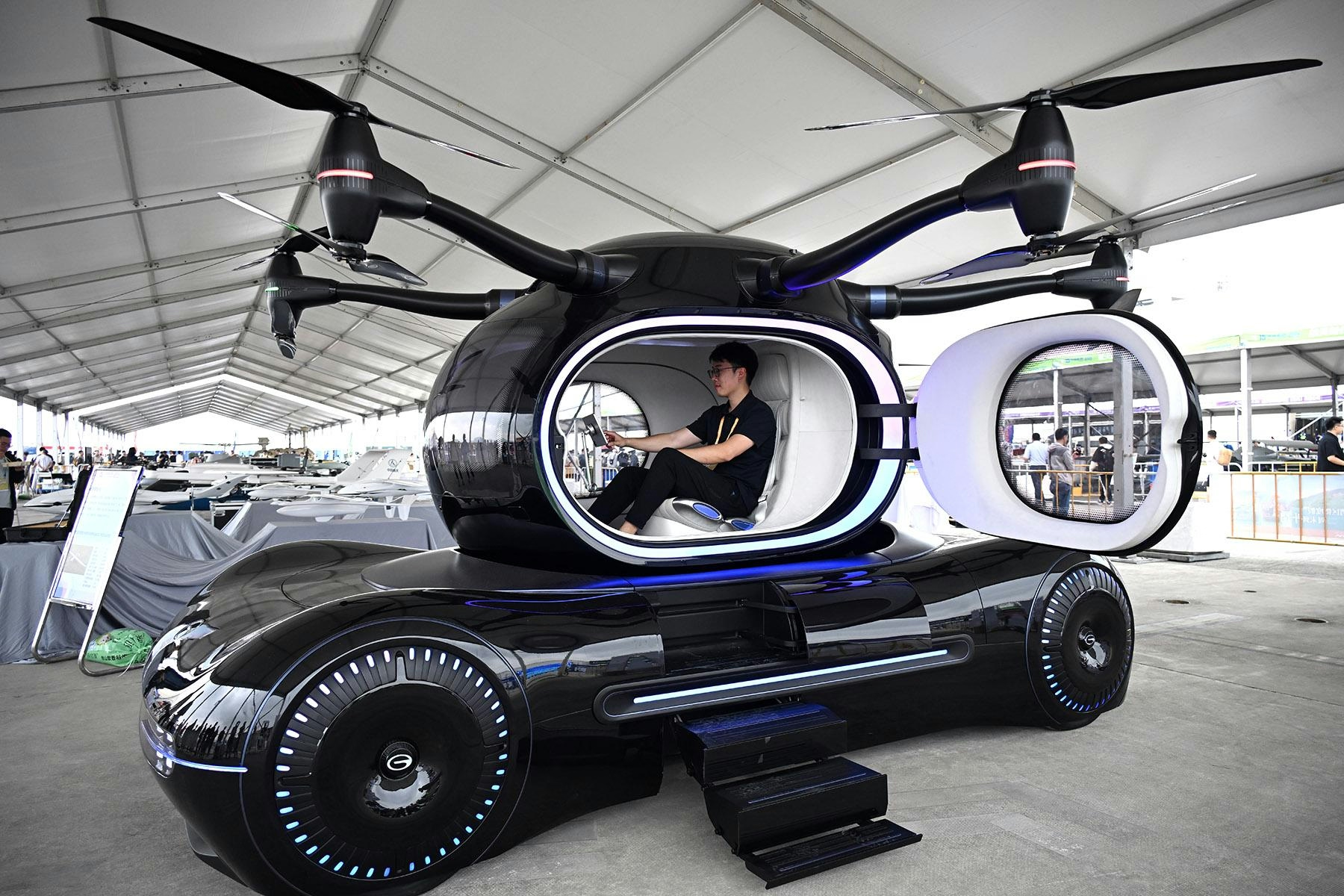AeroGenie — Ваш интеллектуальный второй пилот.
В тренде
Categories
Chinese Manufacturer Unveils All-Electric Flying Car Planned for Mass Production

Chinese Manufacturer Unveils All-Electric Flying Car Planned for Mass Production
A New Era in Urban Mobility
China’s GAC Group has unveiled the Govy AirCab, its first all-electric flying car designed for mass production, marking a significant advancement in the development of urban air transportation. This two-seater electric vertical take-off and landing (eVTOL) vehicle is engineered for short-range urban flights, offering a range of nearly 19 miles per charge alongside ultra-fast charging capabilities. Currently undergoing trial flights, GAC aims to commence mass production and begin customer deliveries by 2026.
The AirCab targets what GAC describes as the “low-altitude economy,” a sector that includes air taxis and small private aircraft. This market is projected by Morgan Stanley to reach a staggering $9 trillion globally by 2050. Priced at approximately 1.69 million yuan (around $233,000), the AirCab incorporates advanced features such as 5G connectivity, voice-activated assistants, cloud-based smart controls, and customizable cabin environments that adjust temperature, music, and even scent to passenger preferences.
Technological Innovation and Safety Features
The AirCab is equipped with Level 4 ground autonomy, enabling it to operate independently under certain conditions while detecting obstacles from distances exceeding 984 feet. Safety considerations are paramount; in emergency situations, the passenger cabin can detach from the main body of the vehicle. Constructed almost entirely from carbon fiber, the AirCab is notably lightweight, and its high-density cylindrical batteries facilitate rapid charging. These technological attributes aim to make short urban flights as convenient and routine as a typical lunch break.
Challenges and Competitive Landscape
Despite its promising technology, GAC faces considerable challenges. Regulatory approval for flying vehicles remains a complex and evolving issue worldwide, with airspace integration and safety standards still under development. The company also confronts intense competition from global players such as Virgin Atlantic, Joby Aviation, and Beta Technologies, all of which are advancing their own eVTOL projects. Within China, domestic automakers including XPeng and EHang are similarly racing to develop comparable vehicles, heightening the technological rivalry.
Market acceptance presents another significant hurdle. While Chinese electric vehicles have made inroads in Europe—capturing, for instance, a 10% market share in Norway—the adoption of flying cars by consumers remains uncertain. In the United States, established automakers have responded cautiously, often employing trade protections to counter the expanding influence of Chinese firms in the electric and autonomous mobility sectors.
Environmental and Future Implications
If widely adopted, electric flying cars like the AirCab could contribute to reducing emissions associated with traditional gas-powered transportation, offering a more environmentally sustainable and efficient alternative for urban travel. The AirCab thus provides a glimpse into a future where innovative and sustainable transport solutions may fundamentally transform urban mobility. As the race to dominate the skies intensifies, GAC’s entry signals the growing momentum behind the development of electric flying vehicles.

Emirates Unveils Cabin Design for New Boeing 777X

Eighteen Years On, the Airbus A380 Remains Central to a $34 Billion Airline

How a boom in luxury airline seats is slowing down jet deliveries

Navitaire Outage Attributed to Planned Maintenance

DigiYatra Debuts Outside Aviation at India AI Impact Summit

Vietnam Orders Strengthen Boeing’s Commercial Outlook

Airbus Signals Uncertainty Over Future A400M Orders

JobsOhio Awards $2 Million Grant to Hartzell Propeller for Innovation Center

Collins Aerospace Tests Sidekick Autonomy Software on YFQ-42A for U.S. Air Force CCA Program

How the Airbus A350-1000 Compares to the Boeing 777
